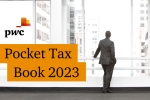Our programmes
To register for preferred course(s), please contact us.
- Business Process Mapping & Enhancement - Partial Course
- Business Process Redesign/Reengineering - Full Course (Zero-based Business Process Reengineering)
- Capability based Strategy Development (CDS)
- Cash Flow Forecasting
- Fundamentals of Infrastructure Public Private Partnerships (PPPs)
- IFRS 1 — First-time Adoption of International Financial Reporting Standards (deep dive)
- IFRS 16 - Leases or another specific IFRS/IAS training
- IFRS 9 - Financial instruments
- IFRS training - general or deep dive (Customised per your request)
- IFRS updates and IFRS/VAS roadmap in Vietnam
- Infrastructure Business Case Training
- Introduction to Financial Modelling
- Procurement category management training
- Reshaping your Business with Effective Financial Management
- Treasury Management for Corporates
Business Process Mapping & Enhancement - Partial Course
The course provides you with an understanding of business process mapping as the foundation for business process redesign, and teaches you the tools and techniques to enhance your business processes.
Objectives
By the end of this course, participants will have a clear understanding of the business process mapping standards, and how to use them to communicate current processes and propose enhancements.
Outcome
By the end of the course, participants will be able to:
- Select Prioritised Areas for transformation
- Develop standardised process mapping to capture current practices
- Analyse processes, and identify how business processes can be improved and what the future looks like
Agenda
- Need for business process mapping
- Standards for business process mapping
- Practising business process mapping
 1 day
1 day
 Classroom / Virtual
Classroom / Virtual
Target audience
- Managers and above
Business Process Redesign/Reengineering - Full Course (Zero-based Business Process Reengineering)
This course takes you through the end-to-end steps in business process reengineering, from basics such as business process mapping, to new frameworks to drive process reengineering (or zero-based process reengineering), as well as the transformations required to ensure that the new processes are embedded within the organisation.
Objectives
By the end of the course, participants will have a holistic view of the requirements to drive business process transformations successfully within the organisation.
Outcome
By the end of the course, participants will be able to understand the core activities required to drive holistic business process transformations.
Agenda
- Business processes structure (five levels)
- Data and insights collection for analysis
- Business Process Mapping
- Transforming Business Processes
- Zero based process redesign
- Business Process Change Management
 5 days
5 days
 Classroom / Virtual
Classroom / Virtual
Target audience
- Managers and above
Capability based Strategy Development (CDS)
Corporate strategy is based on 3 major factors: Way to Play - Capability - Product Portfolio. An understanding of these factors is vital to support strategic decision makers to be able to position their companies for maximum success in the market.
Objectives
The course will help the firm identify:
- Strategic thinking and the unique competitive strength and necessary capability to win in the market
- The gap between the current situation and the level needed
Outcome
By the end of this course, attendees will be able to:
- Formulate a corporate key message to the market (way to play in line with mission, vision & core values)
- Conduct a Capability Analysis - key capabilities to win in the Market and the gap between the required capability and the current situation
- Draw up options & key KPI for execution plan
Agenda
- Understanding framework for Strategy base on Capability: Way to Play - Capability System - Product portfolio;
- Defining the gap between the required capability and the current situation, then develop options to fill the gap
 4 hours
4 hours
 Classroom / Virtual
Classroom / Virtual
Target audience
- Top Management Level & Strategy team
Cash Flow Forecasting
A cash flow statement is one of the key financial statements to be prepared and drawing it up correctly can be challenging. By focusing on various common complex areas, this workshop is designed to reinforce your practical knowledge and enhance your awareness of complexities in this area.
Objectives
In this workshop, we will take you through all that you need to know in order to prepare a cash flow forecast.
Outcome
By the end of this course, attendees will be able to produce a statement of cashflows, which is a valuable reporting tool used or relied upon by various stakeholders to make informed decisions, especially those surrounding liquidity and going concern of a business.
Agenda
- How to apply the definition of 'cash & cash equivalents' in practice
- The difference between 'direct' & 'indirect' methods of reporting cash flows from operating activities
- How to meet the amended MFRS 107 Disclosure Requirement of changes in Liabilities arising from financing activities
- Circumstances under which cashflows related to taxation, acquisition and disposal of equity investments and leases under regulations could be classified as either operating, investing or financing cash flows
- Whether cash flows should be presented on a gross or net basis
- The cash flow statement complexities that could arise with regards to intergroup transactions or transactions with your joint ventures or associates
 1/2 day
1/2 day
 Classroom / Virtual
Classroom / Virtual
Target audience
- Finance Directors
- Tax Controllers
- Senior management
- Finance and tax managers/ executives
- Financial analysts
- Regulators, academics and accountancy students
Fundamentals of Infrastructure Public Private Partnerships (PPPs)
Government of Vietnam has made improvements to the PPP legal framework to attract private sector resources for infrastructure development. A new PPP law has been issued but given early days, its implementation requires more clarity and capacity building initiatives for public and private sector stakeholders. The course will cover the foundations for pursuit and evaluation of PPP projects
Objectives
The course aims to provide:
- Understanding of the concept of a PPP; its structure and scheme, benefits of risk management, and introduction to PPP Risk Management
- Understanding of the Legal aspects of PPP
- Understanding of how to prepare and respond to PPP tender process (RFQ and RFP stages)
- Understanding of the content of a PPP agreement and how to manage the PPP contract
Outcome
By the end of this course, attendees will:
- Understand PPP concepts,
- Have the skills and judgement needed to structure effective PPPs
Agenda
- The foundation of PPP concepts and knowledge, which includes the PPP concept, risk management in PPP, government support, roles and responsibilities of PPP organisations and legal aspects;
- General PPP Procurement Process
- PPP Pre-Qualification Process and Request for Qualification Document
- Tender Process and Request for Proposal Document (RfP);
- PPP Agreement
- PPP Contract Management Principles
 2 days
2 days
 Hydrid
Hydrid
Target audience
Government officials in the PPP procurement cell/ PPP Division of Cities
Industry and Business Associations/ Chambers of Commerce
Infrastructure Investors and Developers
IFRS 1 — First-time Adoption of International Financial Reporting Standards (deep dive)
Vietnam entered into the voluntary application of International Financial Reporting Standards (IFRS) phase under Decision 345/QD-BTC issued by the Ministry of Finance since January 2022 and will enter the mandatory application phase in 2025. IFRS 1 is a crucial starting point for all first time IFRS adopters in Vietnam.
Objectives
The workshop aims to provide the participants key guidance on IFRS 1. It will cover objectives, scopes, measurement and recognition and exemption/ exceptions mentioned in IFRS 1 and their implications for first time IFRS adopters in the Vietnam context.
Outcome
By the end of this course, attendees will :
- Have deep knowledge of IFRS 1
- Understand exemption/ exceptions in IFRS 1 and key implications for first time IFRS adoption in the Vietnam context.
Agenda
- Objectives and scope of IFRS 1
- Recognition and Measurement of IFRS 1
- Applicable exemption/ exceptions mentioned in IFRS 1
- IFRS 1 implications for first time IFRS adopters in the Vietnam context.
 1 day
1 day
 Classroom / Virtual
Classroom / Virtual
Target audience
- Finance Directors/ Financial controllers
- Chief accountants
- Accounting team
- Tax controllers
- Senior management
- Finance and Tax managers/ executives
- Regulators, academics and accountancy students
IFRS 16 - Leases or another specific IFRS/IAS training
Correct application of IFRS 16 can have significant impacts on your accounting policies. In this course, you will reinforce the principles and enhance your understanding of complex application issues and their impact on financial reporting.
Objectives
In this workshop, we will have clearer understanding (from a lessee’s perspective) of the intricacy and complexity of IFRS 16, which goes further than just introducing a lease liability and right-of-use asset (“RoU”) to the balance sheet. For lessors, understanding whether IFRS 16 would apply to a contract is critical to a lessor’s business. Gain better insights as we dive into IFRS 16 to examine the details of how it impacts the financial reporting of lessees and lessors.
Outcome
By the end of this course, participants will:
- Have deep dive of IFRS 16
- Understand how IFRS 16 affects reporting and business, from both lessors’ and lessees’ perspectives
Agenda
- Why it is important for both lessees and lessors to apply the definition of a lease correctly
- How to test RoU for impairment
- Whether accounting for sub-leases makes sense when both lessor and lessee recognise assets on their respective balance sheets
- How a lease contract should be bifurcated when it contains nonlease components
- When a lease liability should be re-measured
- How the principle in both IFRS 15 and IFRS 16 should be applied in a sales and leaseback transaction
- How each transition option impacts future P&L
 1 day
1 day
 Classroom / Virtual
Classroom / Virtual
Target audience
- Finance Directors/ Financial controllers
- Chief accountants
- Accounting team
- Tax Controllers
- Senior management
- Finance and tax managers/ executives
- Regulators, academics and accountancy students
IFRS 9 - Financial instruments
IFRS 9 is new standard for financial instruments designed to replace IAS 39. Its application is mandatory for annual accounting periods beginning on or after 1 January 2018.
The standard brings major changes for accounting for financial instruments, making the transition a complex and time demanding exercise. IFRS 9 provides an opportunity for alignment between your accounting and your risk management. Whilst the financial services sector will see the most significant impact, the implementation of IFRS 9 will have a significant impact on all companies with many commentators saying that IFRS 9 is good for corporates.
Objectives
In this workshop, we aim to provide a detailed understanding of the IFRS 9 standard for financial assets, liabilities and derivatives including:
- The classification and measurement of financial instruments;
- The new impairment methodology based on expected losses;
- The fair value of financial liabilities and deterioration of institutions’ own credit;
- The different types of hedge accounting and the recent IFRS changes
Outcome
By the end of the lesson, participants will have gained an understanding of IFRS 9, including how the IFRS 9 will impact your reporting and business.
Agenda
- Classification and measurement:
- New model for classification of financial assets.
- No separation of embedded derivatives in financial assets.
- Only minimal changes in classification and measurement of financial liabilities.
- Impairment:
- Introduction of a new model for 3-level expected credit losses.
- Simplified model for trade receivables.
- Consideration of expected loss rather than incurred loss
- Hedge accounting:
- Closer alignment to risk management.
- Expansion of scope.
- Simplified testing for hedge effectiveness.
- Changes in accounting requirements including presentation.
 1 day
1 day
 Classroom / Virtual
Classroom / Virtual
Target audience
- Finance Directors/Financial controllers
- Chief accountants
- Accounting team members
- Tax controllers
- Senior management
- Finance and tax managers/executives
- Regulators, academicians and accountancy students
IFRS training - general or deep dive (Customised per your request)
Vietnam entered into the voluntary application of International Financial Reporting Standards (IFRS) phase under Decision 345/QD-BTC issued by the Ministry of Finance since Jan 2022 and will enter the mandatory application phase in 2025. This workshop is customised per your demands to meet your specific expectations/ requirements for the IFRS conversion journey.
Objectives
Vary per your request
Outcome
Customised per your request
Agenda
Customised per your request
 Vary per your request
Vary per your request
 Classroom / Virtual
Classroom / Virtual
Target audience
- Customised per your request
IFRS updates and IFRS/VAS roadmap in Vietnam
Vietnam entered into the voluntary application of International Financial Reporting Standards (IFRS) phase under Decision 345/QD-BTC issued by the Ministry of Finance since January 2022 and will enter the mandatory application phase in 2025. This workshop is to provide information on the key changes/ developments in IFRS and VFRS/IFRS roadmap in Vietnam during the conversion journey.
Objectives
The workshop will update attendees on the main changes/ developments in IFRS and the roadmap for VFRS/IFRS application in Vietnam, as well as discussing issues that have a material impact on financial statements. It will contribute to supporting businesses in the challenging IFRS transition ahead.
Outcome
By the end of this course, attendees will:
- Understand the new developments/ changes in IFRS
- Understand the new developments/ changes in IFRS application roadmap in Vietnam
- Be able to assess the material impact of IFRS/ roadmap changes/ developments in their business and make proper preparation
Agenda
- Key changes in IFRS and IFRIC (including draft ones)
- Roadmap for VFRS/IFRS application in Vietnam and its changes/ updates
- Business material impact from IFRS/ Roadmap changes/ developments
 1/2 day
1/2 day
 Classroom / Virtual
Classroom / Virtual
Target audience
- Finance Directors/ Financial controllers
- Chief accountants
- Accounting team
- Tax Controllers
- Senior management
- Finance and tax managers/ executives
- Regulators, academics and accountancy students
Infrastructure Business Case Training
The Infrastructure Business Case course is fundamentally based on the Five Case Model which is being adopted around the world by G20 Countries; primarily to support robust strategic and business case for infrastructure projects that yield justifiable strategic, economic, financial, commercial and management benefits plus enable value-for-money spending on infrastructure projects.
Objectives
This course aims to teach how to construct a reasonable and structured business case. The course will teach how to apply the step-by-step approach of the Five Case Model, which helps create delivery confidence by ensuring and demonstrating that projects have been robustly scoped and realistically planned from the outset and that they remain so throughout the entire lifecycle.
Outcome
By the end of this course, attendees will have:
- Foundational knowledge and learning on globally adopted practices for infrastructure development.
- Orientation on designing better infrastructure business cases for all round benefits
Agenda
- An overview of the Five Case Model (Why is it needed? How is it used? How is it developed?)
- The 5 Cases:
- Strategic Case – including the development of the ‘case for change’ (business needs – the gap between the expected outcomes and the current situation); identifying the benefits, risks, constraints, and dependencies;
- Economic Case – including long-listing and short-listing using the ‘options framework’; the principles of a cost benefit analysis and the treatment of benefits, risks, and sensitivities in these analyses;
- Commercial Case – including the commercial strategy for procuring the required services and the processes relating to procurement;
- Financial Case – demonstrating affordability and funding availability
- Management Case – demonstrating deliverability; the approach to delivering the investment proposal; the scrutiny/ approval processes; and the project plan for the delivery of the required infrastructure and accompanying organisational change
 2 days
2 days
 Hybrid
Hybrid
Target audience
- GDs/DGDs with responsibility for the successful delivery of programmes and projects;
- Project Managers, Project Team Members, and Specialist Advisers tasked with delivering business cases for infrastructure projects;
- Senior government officials involved in the scrutiny and review of infrastructure investment proposals
Introduction to Financial Modelling
Financial modelling is a strategic tool used to:
- Simulate the future cash flows of a company / project
- Analyse the impact of different outcomes on the financial position / forecast of the company, and
- Assist in the decision-making process.
It is a highly transferrable skill with regular application in capital budgeting decisions, business valuations, project financing, scenario planning, feasibility assessment, debt restructuring, private equity deal analysis and much more.
Objectives
The course aims to teach:
- Understanding and application of the elements of a transparent, flexible and professionally presented financial model
- Understanding and application of commonly used Excel formulae
- Understanding of basic accounting relationships
- How to build a financial model from scratch
Outcome
By the end of this course, participants will:
- Understand the modelling process
- Recognise modelling best practice
- Understand basic accounting relationships
- Be able to build their own financial model from scratch
Agenda
- The modelling process
- Modelling best practices
- Case Study: demonstration by instructors and hands-on practice for the participants
- Role Play: to experience how a financial model is used as a tool in decision-making processes
 1 - 1.5 days
1 - 1.5 days
 Classroom
Classroom
Target audience
Mid-management level and below
- Finance and tax managers/executives
- Investment analyst
- Financial analysts
- Financial consultants
Procurement category management training
The programme trains procurement professionals in managing procurement categories. It presents a shift from the more commonly practised strategic sourcing approach, to the category management approach to procurement, with expected additional savings from 10 to 30% of procurement spend.
Objectives
This structured course will provide the key elements of developing and managing a procurement category.
Outcome
By the end of the course, participants will be able to develop, analyse and manage a category to drive cost savings in this new way of procurement.
Agenda
- Understanding category management
- Developing a category
- Spend Analysis
- Market Analysis
- Developing a category plan
- Being a trusted advisor on category management
 5 days
5 days
 Classroom / Virtual
Classroom / Virtual
Target audience
- Procurement professionals
Reshaping your Business with Effective Financial Management
Unforeseen risks lead to many businesses including SMEs being badly affected, depending on which industry they are in. In ensuring business sustainability, productivity and employee’s employability, SMEs and their employees must consider action plans & initiatives which include managing the business finances effectively.
Objectives
The course aims to provide SMEs better understanding of how to read and interpret financial terms presented and disclosed in a set of financial statements as well as how to analyse some of the common key financial performance ratios to be able to make informed business decisions. The course also covers cashflow management, investment appraisal and monitoring budgets.
Outcome
By the end of this course, attendees will:
- Understand the significance of financial statements and their components
- Be able to perform financial analysis
- Understand cash operating cycle and how to manage it
- Understand how to perform inventory costing
- Understand how to appraise investments and what are some of the investment appraisal tools
- Be able to manage foreign currency exposures
- Understand how to do good budgeting and monitor it
- Recognise some of the potential warning signals that may arise from financial statements
- Understand other impacts of Covid-19 on financial reporting
- Understand tax considerations
Agenda
- What are cash and cost levers that impact a Business performance
- How can we baseline cash and cost levers for An organization (qualitative and quantitative)
- What are benchmarks and performance indicators that indicate sub-optimal Financial management
- What are Assessment dimensions to articulate Financial performance improvement for An organization
- How can we enable improved Financial performance management through focused initiatives
- How do we prioritize Key initiate to ensure short to medium term improvement
- Elements/Constituents of action plan for improvement
 1/2 day
1/2 day
 Classroom / Virtual
Classroom / Virtual
Target audience
- SME owners / directors
- SME Finance senior management
- SME Finance and tax managers/executives
- Regulators, academics and accountancy students
Treasury Management for Corporates
Treasury is a less mature but critical element within finance. Vietnam is seeing increased focus on Treasury Management, with increased requests to cover treasury, risk and liquidity management.
Objectives
In this workshop, we will take you through all components of Treasury as a function and critical elements and role of a Treasurer.
Outcome
By the end of this course, attendees will:
- Understand key elements of corporate treasury
- Be equipped with the key skills needed to perform the treasury function
- Be able to set treasury KPIs
Agenda
- Key Elements of Corporate Treasury
- Treasury Professional - key skills required
- People, Process and Systems overviews
- Examples of Treasury functions of corporates
- KPIs
 1/2 day
1/2 day
 Classroom / Virtual
Classroom / Virtual
Target audience
- Finance Directors
- Tax Controllers
- Senior management
- Finance and tax managers/executives
- Financial analysts'
- Regulators, academics and accountancy students

FAQs & Other insights
Keen to learn more about PwC's Academy? Click the button below to explore.













